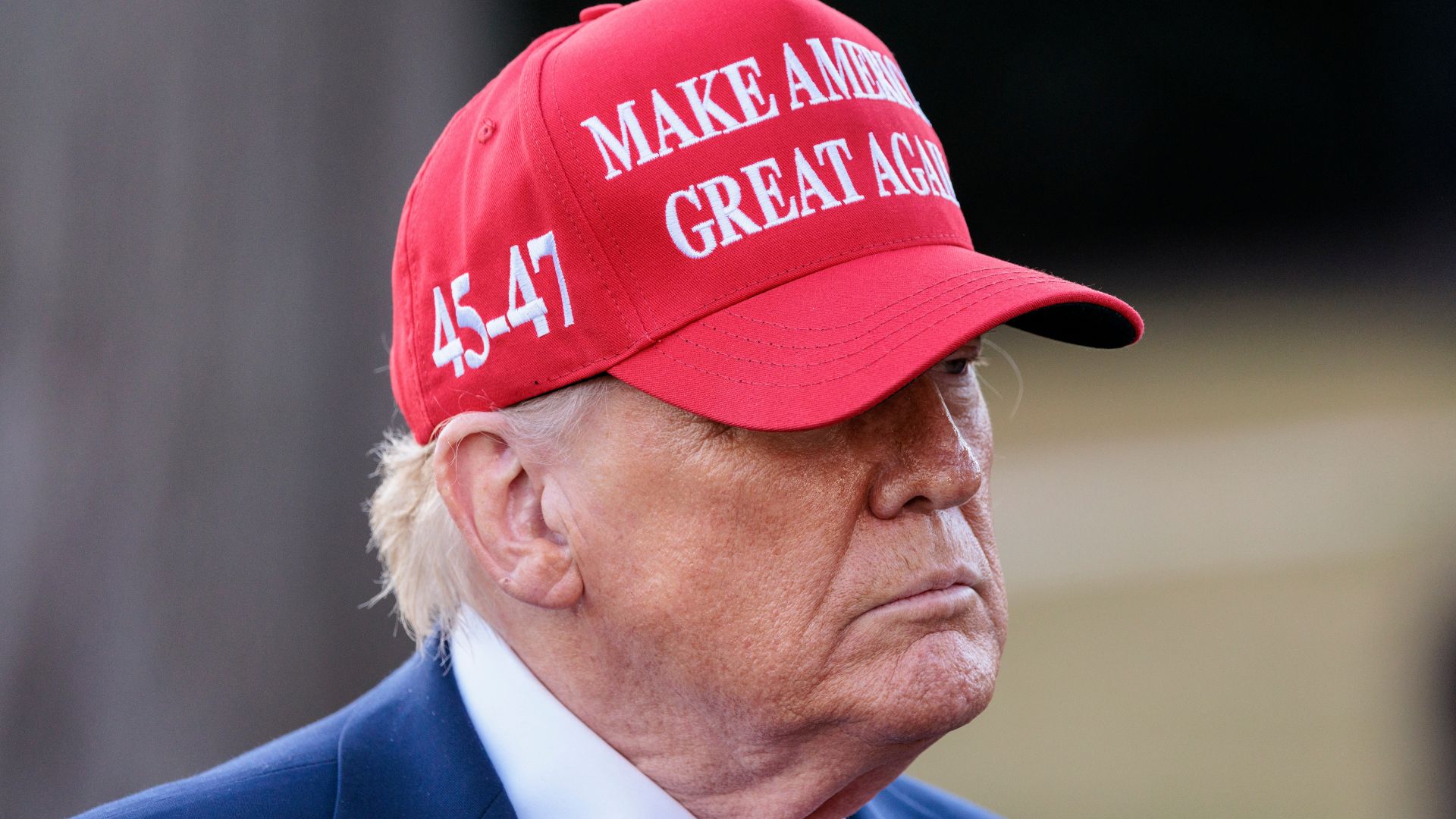
President Donald Trump on Thursday announced the completion of a new trade agreement with Mexico following what he described as a “very successful” phone call with Mexican President Claudia Sheinbaum.
The deal includes significant tariff concessions from Mexico and is intended to address long-standing trade imbalances, border security concerns, and illicit drug trafficking.
President Trump’s call with Mexican President Sheinbaum was very positive and constructive. Mexico now understands that any deal must address the twin crises of fentanyl/illegal immigration, as well as attacking Mexico’s enormous trade deficit. Over the next 90 days, we will…
— Howard Lutnick (@howardlutnick) July 31, 2025
Trump’s Sovereign Wealth Fund: What Could It Mean For Your Money?
According to President Trump, the agreement imposes new U.S. tariffs on key Mexican exports including a 25% tariff on fentanyl, a 25% tariff on cars, and a 50% tariff on aluminum, steel, and copper. The revised trade terms are scheduled to take effect on Friday.
In his public remarks, Trump said the strengthened relationship with President Sheinbaum helped lay the groundwork for the latest deal, which he characterized as a major achievement for the U.S. economy and national security.
“We are getting to know and understand each other,” Trump said, referring to his ongoing discussions with Sheinbaum.
“This has been a very successful call and a very successful agreement for both countries.”
This Could Be the Most Important Video Gun Owners Watch All Year
In addition to the tariffs, the agreement includes a provision for Mexico to eliminate non-tariff trade barriers—policies and regulations that restrict U.S. exports into Mexico.
Trump noted that many such barriers have historically disadvantaged American businesses and workers.
The deal is temporary and will remain in place for 90 days while U.S. and Mexican officials work toward a permanent agreement.
Both sides are expected to negotiate further terms related to drug and human trafficking, border security, and immigration enforcement.
“There will be continued cooperation on the Border as it relates to all aspects of Security, including Drugs, Drug Distribution, and Illegal Immigration into the United States,” President Trump said.
The agreement was reached with assistance from several top members of the Trump administration, including Vice President JD Vance, Secretary of Treasury Scott Bessent, Secretary of State Marco Rubio, Secretary of Commerce Howard Lutnick, U.S. Trade Representative Jamieson Greer, Chief of Staff Susie Wiles, and White House Deputy Chief of Staff for Policy and Homeland Security Advisor Stephen Miller.
Trump emphasized that the new tariffs with Mexico come just in time to avoid the implementation of “reciprocal” tariffs that his administration has threatened to place on countries without comprehensive trade agreements with the U.S.
Mexico became the United States’ largest trading partner in 2023, overtaking China.
The announcement highlights the Trump administration’s focus on reshaping trade relations with Mexico, a key economic and geopolitical neighbor.
While the U.S. stands to benefit from the tariffs and elimination of trade barriers, Mexico also retains access to one of its most important export markets.
The U.S. is Mexico’s second-largest trade partner after China.
In prior agreements with Sheinbaum’s government, Trump secured commitments to deploy thousands of Mexican police to the border to curb illegal crossings and increase enforcement against cartel operations.
The administration has also encouraged U.S. companies to relocate operations from Mexico back to the United States.
Trump cited automaker Honda as one example, noting that the company has committed to closing some of its Mexican production facilities and building new factories in the U.S.
With the new tariffs taking effect Friday, both nations are expected to continue negotiations with the goal of establishing a long-term trade agreement that addresses broader issues surrounding economic policy, border management, and regional security.

![Trump Secures Tariff Concessions From Mexico After 'Very Successful' Call [WATCH]](https://www.right2024.com/wp-content/uploads/2025/08/Trump-Secures-Tariff-Concessions-From-Mexico-After-Very-Successful-Call-750x375.jpg)



![Gavin Newsom Threatens to 'Punch These Sons of B*thces in the Mouth' [WATCH]](https://www.right2024.com/wp-content/uploads/2025/08/Gavin-Newsom-Threatens-to-Punch-These-Sons-of-Bthces-in-350x250.jpg)
![ICE Arrests Illegal Alien Influencer During Her Livestream in Los Angeles: ‘You Bet We Did’ [WATCH]](https://www.right2024.com/wp-content/uploads/2025/08/ICE-Arrests-Illegal-Alien-Influencer-During-Her-Livestream-in-Los-350x250.jpg)








